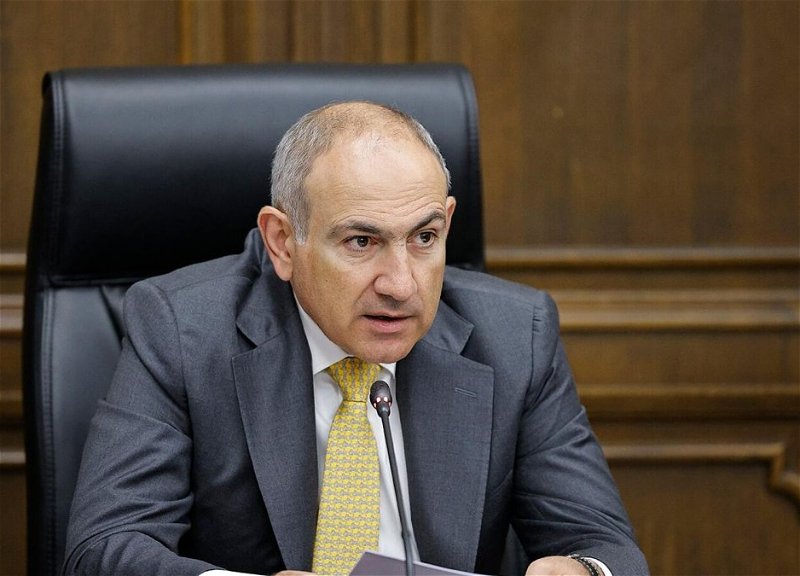In one of his most consequential addresses to date, Armenian Prime Minister Nikol Pashinyan laid out a sweeping redefinition of the country’s foreign policy, signaling a decisive move away from traditional security alliances and toward a more diversified, pragmatic geopolitical strategy.
Framed around themes of sovereignty, regional security, and the need for long-term peace, Pashinyan’s remarks reflect a broader reckoning with Armenia’s past dependencies — particularly on Russia — and a recalibrated vision for Armenia’s place in a rapidly shifting global order.
Turning East: The Shanghai Cooperation Organization
A key announcement was Armenia’s official bid to join the Shanghai Cooperation Organization (SCO), a regional bloc that includes China, Russia, India, Iran, and others. This move, according to Pashinyan, is not a reactionary pivot but a deliberate attempt to redefine Armenia’s strategic partnerships outside the Western-Russian binary.
In the context of Russia’s diminished role in the South Caucasus — exacerbated by its war in Ukraine — Armenia is seeking new platforms for legitimacy, security cooperation, and multilateral engagement. Pashinyan’s statement sends a message to both Brussels and Washington: Armenia will no longer operate as a client state within a singular geopolitical orbit.
Collapse of Trust in the CSTO
Perhaps the most direct rebuke came in Pashinyan’s assessment of the Collective Security Treaty Organization (CSTO), Russia’s military alliance. He openly criticized the bloc’s inaction during the 2022 border clashes with Azerbaijan, especially its refusal to recognize the territorial integrity of Armenia amid clear breaches.
“The CSTO cited ‘border ambiguity’ as justification for inaction,” said Pashinyan, effectively accusing the alliance of undermining Armenian sovereignty. In reality, this response highlighted the CSTO’s unwillingness to confront Azerbaijan — a close Turkish ally — and exposed Armenia’s vulnerability as a junior partner within a security architecture dominated by Moscow.
For the first time at the highest level, Armenia appears to be entertaining a formal withdrawal from the CSTO. Pashinyan’s rhetorical question — “Where is the red line?” — encapsulated a deep erosion of trust and signaled a shift toward alternative security models, including engagement with Western partners and regional organizations like the SCO.
Redefining the Karabakh Conflict
One of the most politically sensitive aspects of the speech was Pashinyan’s explicit recognition of Azerbaijan’s territorial integrity — including areas previously claimed by Armenia in and around Nagorno-Karabakh. This acknowledgment breaks sharply with decades of Armenian foreign policy and reflects a painful but pragmatic reassessment of geopolitical realities.
Pashinyan admitted that since 2018, Armenia had been trapped in a “Karabakh deadlock,” with little room for maneuver. By refusing to reaffirm claims on Karabakh, he aims to normalize relations with Baku and unlock long-term stability. The shift is likely to deepen internal political divides, particularly among nationalist factions and the Armenian diaspora, but Pashinyan argued that such compromise is essential for peace.
“We cannot demand respect for our own borders while denying the same to our neighbors,” he stated — a clear message that irredentist ambitions are no longer part of Yerevan’s playbook.
A New Strategic Doctrine
Taken together, Pashinyan’s speech reads as a de facto foreign policy doctrine built on four principles:
Decoupling from exclusive reliance on Russia
Recognition of regional territorial realities and pursuit of durable peace
Assertive diplomatic sovereignty and multilateral engagement
Integration into alternative international platforms like the SCO, coupled with a parallel Western track
What distinguishes this moment is not merely the policy content but the tone: stripped of ideological platitudes, it presents a hard-nosed assessment of Armenia’s diminished strategic leverage and the need to rebuild from a position of realism.
Critics argue that Pashinyan’s course carries risks — potentially alienating both Russian and nationalist elements at home, while still lacking firm security guarantees from the West or regional powers. However, proponents say it’s a long-overdue break from illusions that Armenia could rely indefinitely on Russian military backing or unresolved conflict to define its national identity.
Whether Armenian society is ready to embrace this path remains uncertain. But one thing is clear: with this speech, Pashinyan has put forth a new paradigm for Armenia — one that prioritizes sovereignty, pragmatism, and multipolar engagement over isolation and nostalgia.


